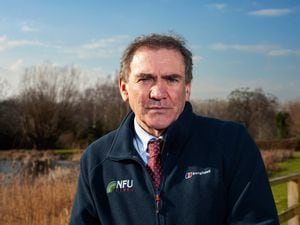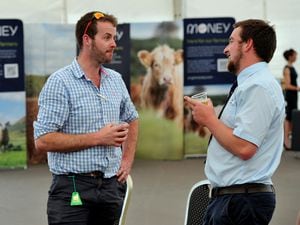Slashing subsidies could be 'great' for farming industry, Shropshire conference hears
Axing subsidies in the wake of Brexit could be "great" for farmers, a conference in the county has heard.
Hundreds of farmers from all over the Midlands came together in fields near Weston Park for the fourth annual Arable Event, which looks at the latest machinery and techniques for growers.
As part of the event at Woodlands Farm, farmers heard from key speakers on the subject of Brexit and its impact on agriculture.
North Shropshire MP and former Defra Minister Owen Paterson had been due to speak but withdrew to attend the Queen's Speech in London.
But farming consultants Simon Ward and Peter Fane were present to present their views on how withdrawal from the EU will affect the industry – including possible changes to subsidies that are currently handed over to growers by the union.
Mr Ward said: "The removal of subsidies could be great for serious entrepreneurs and for new entrants.
"If you can't keep body and soul together though the subsidy you have to do something reasonable – and if you can't do that then somebody else will.
"The conclusion won't be growing more wheat or oilseed rape, it will be doing something different, looking up new opportunities."
He added: "If you are relying on subsidy, you need to get into a position where you are not.
"It means running the business well and doing other things – but that's real life."
Mr Ward, who told farmers he took a neutral line on Brexit in advising on how to deal with its fallout, added that the issue of tariffs on imports and exports would create a tension between farmers and consumers.
High tariffs would likely lead to higher prices paid at the farm gate, but would also lead to price inflation during an "economic wobble", he warned.
"Brexit isn't good or bad," he added. "There's opportunities and there are problems."
Mr Fane, meanwhile, said that some parts of the farming industry may find themselves short-handed because of a fall in the number of labourers coming to the country.
That, he said, was partly because those workers feel less welcome in the UK rather than physical barriers being imposed.
He added: "The question over the next 18 months is are you fit for Brexit?
"Forget what you voted for and what we were told would happen, and work out whether your costs are really as low as they could be, whether you're in the right enterprise, and whether your output is as good as it could be."





